Disclaimer For educational purposes only. Do not use as medical advice
AboutBotanyChinese MedicineCaution
| Health Benefits |
| For: Chronic hepatitis • Fibromyalgia • Chronic fatique syndrom • Poor immune system • Cold/flu • Upper respiratory infection • Diabetes • Lower blood pressure |
|
Attributes: Antioxidant • Immune System Booster • Diuretic • Anti-aging • Hypoglycemic • Hypotensive • Hepatoprotective
|
| Research (sample) |
| Articles:
|
| Constituents: Asparagine • Calycosin • Formononetin • Choline • Betaine • glucoronic acid • Saponins • Astragaloside • Isoflavones • Kumatakenin • Polysaccharides • Pterocarpans • Traces of coumarins |
| Photos (Click to enlarge) |
|
|
| Fun Facts |
Other Names: Wolf's bane • Leopard's bane • Mountain tobacco • Mountain arnica
Plant Family: Asteraceae |
Arnica flowers treat inflammation for mouth, throat and other sores. It's more commonly used for insect bits, muscle tightness, pain and bruises. In Asia, the roots are more popular. They are soaked in alcohol and the combination treats injuries and skin disorders.[Ref]
Arnica is listed in the following pharmacopeias: German Commission E 1992 • Martindale Extra Pharmacopoeis 1972 |
| Astragalus membranaceus is NOT in the USDA database. |
|
USA: Astragalus membranaceus is not found in the wild.
USDA Zones: 6-9
World: China, Korea, Mongolia
Habitats: Sandy soil, valleys and mountains
|
| Category: Tonify Qi |
| English: Astragalus Pinyin: Huang Qi Pharmaceutical: Radix Astragali Membranacei |
| Organs: Lung • Spleen Temperature: Warm Taste: Sweet • Bitter Toxicity: None noted |
| Patterns: Blood deficiency • Qi deficiency • Poor immune system |
| Actions: Tonify Spleen Qi • Tonify protective qi • Tonify Lung Qi • Tonify Qi to move blood • Raise stomach yang qi • Improve urination • Relief Edema • Discharge pus • Generate flesh |
| Indications: Poor urination • Unexplained sweating • Frequent cold/flu • Frequent upper respiratory infections • Edema • Fatigue • Sores • Ulcers • Shortness of breath • Poor appetite • Diarrhea • Bleeding from Qi deficiency • Prolapse of uterus, Stomach, or rectum • Cough • Asthma • Limb numbness • Paralysis |
| Contraindications: Autoimmune diseases • Exterior excess • Qi stagnation • Damp obstruction • Food stagnation • Yin deficiency |
| Typical Dosage: 3g to 12g • Small dosage boosts immune function, however, dosage > 28 grams might cause immunosuppression. Plants should be 4 years or older. [ref] |
| Parts Used: Roots (4 or more year old plants) |
| Other: Sheng - to dry damp • Chao - to tonify Spleen, stop sweating, calm fetus • Chao jiao - to stop diarrhea |
| Combine With |
Purpose |
| Ren Shen |
Qi deficiency: fatigue, unexplained sweating, loss of appetite |
| Fu Zi |
Yang deficiency: unexplained sweating |
| Bai Zhu |
Spleen qi deficiency: loose stool, diarrhea, weakness |
| Dang Gui |
Blood deficiency: fatigue, mild fever, thirsty, numbness, obstruction |
| Sheng Ma + Chai Hu |
Sunken Spleen qi: rectal prolapse, uterine bleeding, uterine prolapse |
| Fang Feng + Bai Zhu |
Exterior deficiency from weak protective qi: unexplained sweating |
| Gui Zhi |
Qi and blood deficiency, weak protective and nutritive qi: numbness of body parts |
| Shan Yao + Sheng Di Huang |
Diabetes |
| Qiang Huo + Jiang Huang |
Bi syndrome |
| Dang Gui +Tao Ren + Hong Hua |
For healing qi deficiency and blood stasis after a stroke |
| Sheng Di Huang + Huang Bai |
Yin deficiency: night sweats |
| Mu Li + Fu Xiao Mai |
Unexplained day sweating that worsens at night |
| Han Fang Ji + Fu Ling + Gui Zhi |
Swelling of hands and feet |
| Dui Yao Pairs |
Purpose |
| Huang Qi + Mu Li |
Yang, Qi and Yin deficiency: night sweat and unexplained sweating |
| Huang Qi + Zhi Fu Zi |
Yang collapse |
| Huang Qi + Fang Ji |
Wei Qi deficiency: Wind edema and Bi Syndrome |
| Formulas with Dang Gui |
Ai Fu Nuan Gong Wan • An Chong Tang • An Tai Yin • Bao Chan Wu You Fang • Bao Yuan Tang • Bu Fei Tang • Bu Yang Huan Wu Tang • Bu Zhong Yi Qi Tang • Dang Gui Bu Xue Tang • Dang Gui Liu Huang Tang • Dang Gui Yin Zi • Fang Ji Huang Qi Tang • Gu Ben Zhi Beng Tang • Gu Chong Tang • Gui Pi Tang • Huang Qi Gui Zhi Wu Wu Tang • Huang Qi Jian Zhong Tang • Ju Yuan Jian • Juan Bi Tang • Mu Li San • Ren Shen Bu Fei Tang • Ren Shen Yang Rong Tang • Shen Qi Si Wu Tang • Sheng Yu Tang • Shi Quan Da Bu Tang • Tai Shan Pan shi San • Tong Ru Dan • Wu Tou Tang • Yu Ping Feng San • Yu Ye Tang • Zai Zao San
|
| Alert |
Be cautions with all medicine.
- Dosage greater than 29 mg may cause immunosuppression.
- Huang Qi is a diuretic and may interact with other diuretic drugs.
- Avoid use after an organ transplant because of its immunostimulant effects.
|
| Potential Drug Interactions |
|
Herbal medicine may interact negatively with pharma drugs and other herbs. Examples below:
Herbs: ♦Huang Qi is antagonized by Bai Wei, Chuan Xiong, Xi Xin, Xing Ren, and Xuan Shen ♦ Huang Qi is counteracted by Kuan Dong Hua ♦ Diuretic: heal all ♦ Hypotensive: ginseng, goji berry, cinnamon ♦ Antidiabetic: Mei Gui Hua, Du Zhong, Dang Shen, HuoLong Guo, rougui, Celery, Chamomile, Moringa Tree, Basil, Ku Gua, Hibiscus, Gou Qi Zi, Ju Hua, Xia Ku Cao, Dang Gui, Zhi Mu, Shi gao, Xuan Shen, Cang Zhu, Shan yao, Huang Qi, Artichoke
Pharma Drugs:♦ Astragalus may interact with immunosuppressive drugs like cyclophosphamide, azathioprine, basiliximab, cyclosporine,, daclizumab, and more ♦ Diuretic: Lithium, Acetazolamide, Aldactone, Amiloride Hydrochloride, Bumex, Diuril, Diulo, Demadex, Dyrenium, Edecrin ♦ High blood pressure: captopril (Capoten), benazepril (Lotensin), Perindopril (Aceon), irbesartan (Avapro), telmisartan (Micardis), valsartan (Diovan), acebutolol (Sectral), carvedilol (Coreg), metoprolol (Lopressor), amlodipine (Norvasc), felodipine (Plendil), verapamil (Calan), labetalol (Trandate)
|
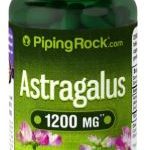
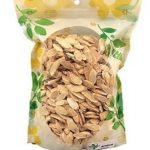
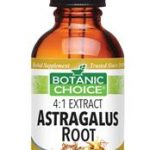

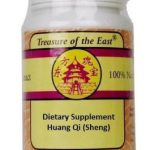
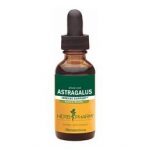
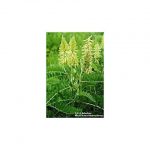
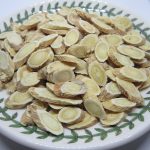
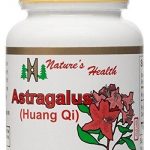
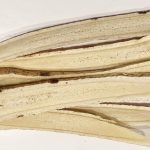
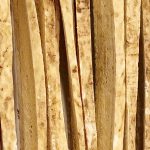
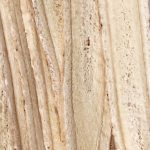
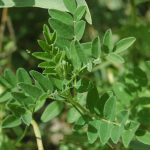
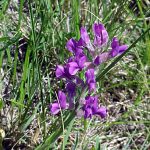
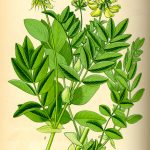
0 Comments